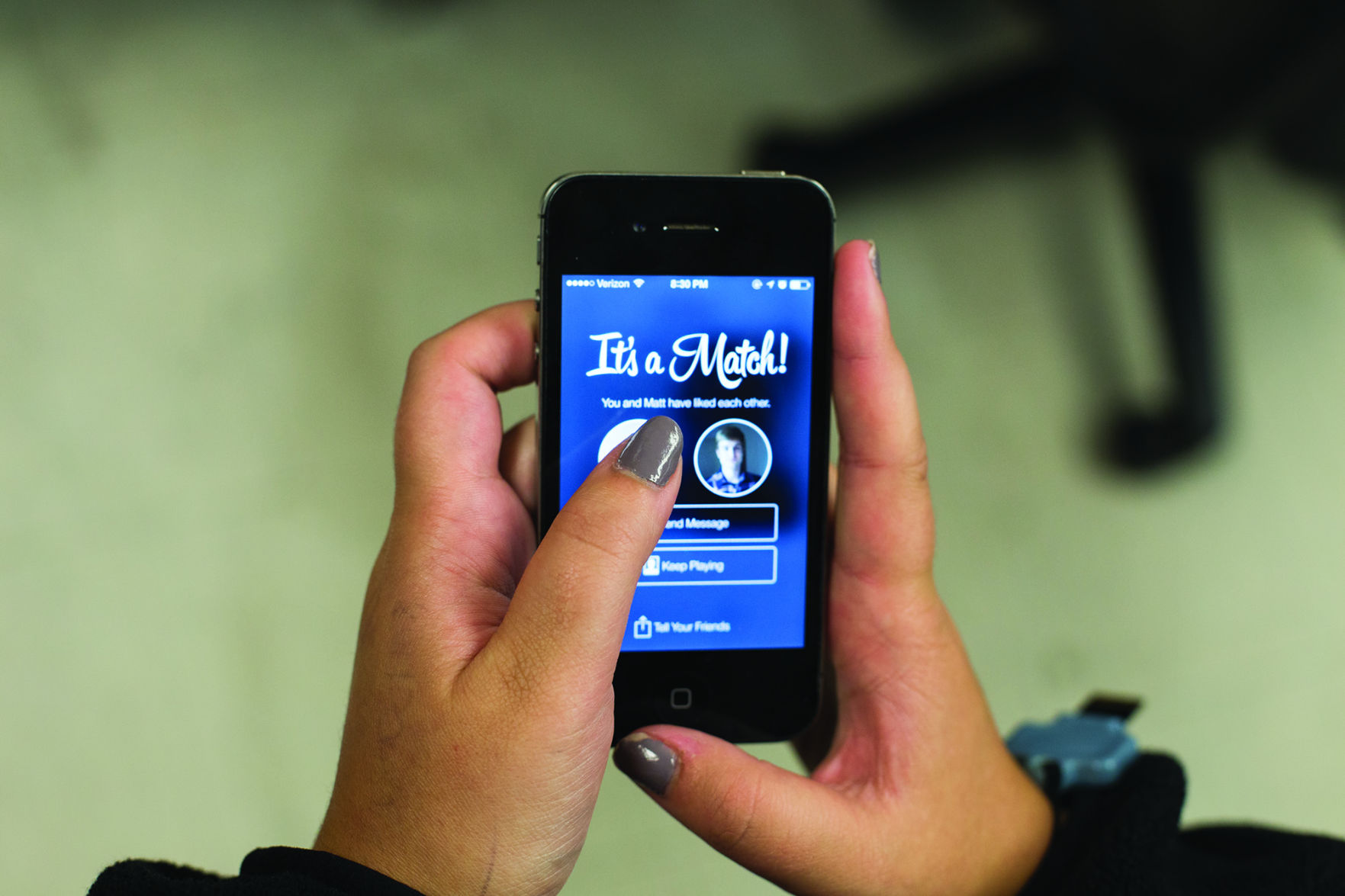
tinder
One-third of people who use online dating websites or apps have never gone on a date with anyone they’ve matched with, according to the Pew Research Center. Freshman finance major Aaron Nadler falls in that one-third.
“We were at beach week, and my friend was messing with [JSwipe], and I had no idea what it was, so I downloaded it and started swiping,” Nadler said. “I didn’t have any intention of meeting people.”
JSwipe — a dating app similar to Tinder, but geared toward Jews — allows people to swipe right or left on Jewish singles nearby to find romantic matches.
Bumble, another app similar to JSwipe and Tinder, is also gaining popularity among students on the campus. Created by Tinder co-founder Whitney Wolfe, Bumble was created with a feminist bent, as the woman must message the man first or the connection disappears.
“The way Bumble works is that … you only have 24 hours as the girl to message the guy first,” said Julia Zhen, a freshman supply chain management major. “Guys can’t message the girls first, but they do have an option of once a day [getting] to pick one person to continue the match [with] if the girl hasn’t messaged them yet.”
Bumble also allows users to go back to potential matches they might have swiped over, but limits this feature to three uses a day, Zhen said.
Zhen said she also made a Tinder account but deleted it after a week, as she grew less excited about it. Though she didn’t download either app with the intention of finding a potential soul mate, she said she finds Bumble more fun now that she’s in college.
“In high school, I was like, ‘That’s creepy; I don’t want some 30-year-old dude macking on me,’” she said. “But I figure, if I was on campus, and I did a 10-mile radius, I would probably match up with a lot of people.”
Logan Refosco, a freshman kinesiology major, said he stumbled upon Tinder in a similar way — he downloaded it just for kicks.
“It’s just to scroll through it and see people,” Refosco said. “Typically, I don’t talk to any of the people I match with.”
Refosco said he has met with a few of his matches, but never for real dates.
“Nothing bad has ever come from talking to anyone,” he said.
While Zhen and Nadler said they would recommend these apps to others to use for fun or meeting people, they agreed that they wouldn’t use them to find an actual romance.
“You have to actually know the person to take them out on a date,” Nadler said.
Zhen added that she believes there’s somewhat of a stigma surrounding the use of these apps, though it may stem from misunderstanding.
“There’s definitely a misconception it’s all, like, 50-year-old dudes, but there are settings where you can make it so it’s under the age of 25,” she said. “So it’s really mostly for recreational uses. I doubt anyone’s looking for their significant other.”



